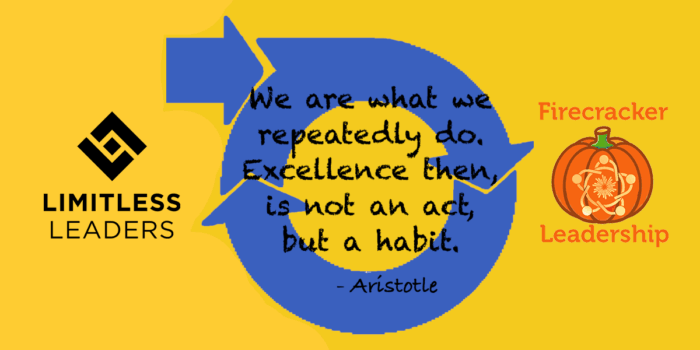My Wednesday Wish for You: Calm Confidence When you step into something new, an unfamiliar role, a daunting project, or…
Need some new interview questions? These might give insight into your candidates.
In today’s complicated labor market, how do smart CEOs know which candidates to hire, and which to pass by? To find out, we asked this question in our new survey of 1,220 CEOs: “During a job interview, what one question reveals the most about a candidate?”
The respondents were CEOs of Inc. 5000 companies, leaders of some of the fastest-growing businesses in the nation. They know how important it is to hire the right people–and how difficult. “Candidates are coached so much today that it’s hard to separate a person’s desire to get hired from their desire to work,” one respondent told us.
Many CEOs say they are personally involved in interviewing candidates and making hiring decisions. And many have a favorite interview question that they say tells them what they need to know. Some of these favorites are familiar. “Tell me about yourself.” “Why do you want to work here?” “Why did you leave your previous employer?” But some may come as a complete surprise to the candidates who get asked them. That’s exactly the point–these unexpected questions are designed to break through the coaching and the rehearsed answers to reveal the human being underneath.
Here are 21 of the CEOs’ most unusual questions. Adapt them for your own purposes next time you’re hiring. And if you happen to go on a job interview, don’t be surprised if you get asked some of these yourself.
1. “What question did you come in here hoping I would not ask?”
This question, like many, is intended to catch the candidate off guard, and it invites them to reveal something about themselves. A smart candidate might answer with an illegal question such as, “How old are you?”–because of course, they’re hoping that their prospective employer is smart enough not to break the law. Or they could use it to get ahead of something they know might be a negative, such as a gap in their employment history.
2. “On a scale of 1 to 10, how lucky are you?”
This is a great question because research shows that whether someone believes they are lucky or unlucky is a matter of how they perceive themselves. People who see themselves as lucky likely approach life with a spirit of gratitude and optimism that could benefit them and their employers.
3. “You have an employee with a sick cat. What do you do?”
“Doesn’t matter what they say, it’s whether they realize that this is an entirely typical problem,” the CEO who uses this question explained. “People have problems, and as a supervisor you have to respond.”
4. “Why?”
One CEO likes to ask “Why?” after a candidate responds to a question. That invites them to think beyond the practiced answer they’ve probably given many times before, and say something more revealing about how they think or what approaches they use.
5. “If your home caught fire at 3 a.m., what three things do you grab on your way out the door?”
The answer to this question can tell you a lot about what the candidate values most. So will their willingness to answer it honestly and without too much hesitation.
6. “Tell me about a time you’ve been the most afraid in an aircraft, and how you dealt with the situation.”
Again, a willingness to answer a revealing question like this honestly can tell you a lot. So will their actual answer. Did they stay calm? Did they try to reassure the stranger next to them?
7. “If you were to retire today, what would you do?”
A great question because it invites the candidate to talk about their dreams and long-term plans, what they enjoy, and what they value most.
8. “What are you doing when you feel most yourself, or most alive?”
Another great question, not only because it should be a joy to answer, but also because it can tell you what they really love to do, and are really good at.
9. “What is the most difficult thing you have had to overcome in your life?”
“It’s interesting to see who chooses something work-related, versus an example from their personal life,” the CEO who uses this question told us. “The responses will blow you away.”
10. “Where do you like to travel or what do you like to do on vacation?”
“It is an unguarded question,” the CEO who asks it explains. “Many times, they will tell you a whole lot more about how they view life, the world, and their personal goals.”
11. “Give me three valid reasons why I should not hire you.”
Many of the CEOs said they like to ask questions that get at the candidate’s perceived weaknesses, such as what a former supervisor would say needs improvement, or what someone who didn’t like the candidate would say about them. But because this question asks for valid reasons not to hire them, it’s inviting them to candidly own up to their own weaknesses–which everyone has.
12. “What is the most embarrassing thing that has happened to you in your career?”
This may be better than the standard interview request to describe a difficulty the candidate overcame. Candidates can respond by telling a funny story about themselves, or with something more heartfelt. Either way, you’re likely to get an answer that’s less rehearsed and more revealing.
13. “If I showed up at your front door right now, what would I be surprised to see?”
This is a wonderful question these days when interviews over videoconference are the norm. Again, it invites the candidate to be honest and revealing, and to tell you what’s important to them. The question is likely to surprise them, and how they deal with that should be revealing, too.
14. “What do you want to be when you grow up?”
Questions about the candidate’s future goals and aspirations are common interview fodder, of course. But this question invites a more whimsical answer and an acknowledgement that many of us never quite feel grown up, no matter how old we get.
15. “What are your three favorite movies, and if you were playing a character in one of them, who would it be?”
A person’s choice of favorite movies (a question that doesn’t really have a wrong answer) can tell you a lot about who they are and how they see the world. And asking which character they would play in their favorite movies should tell you a lot about how they see themselves, and who they aspire to be.
16. “Can you tell me about a time when you taught someone something new?”
“This question is very illuminating because it touches on many different aspects of a candidate’s personality and skill set,” the CEO who asks it says. It shows their communication skills, their ability to empathize–a key component of teaching–and their ability to motivate others.
17. “Teach me how to tie a shoe.”
This is a different form of the previous question, in which the candidate has to actually demonstrate their abilities. The CEO who asks it says it’s a good way to learn “if the candidate is able to explain a simple concept in a coherent manner.”
18. “Tell me about someone in your life who is better than you are at something that is important to you.”
This is a great question because it invites the candidate to show humility, objectivity, and generosity, as well as tell you what is important to them.
19. “How long have you been close with one person in your life you count on other than your parents?”
It is, of course, illegal to ask candidates about their family or marital status. But by asking a non-specific question like this, you can learn about how good the candidate is at creating and maintaining stable relationships, an important skill in most jobs.
20. “Describe your closet to me.”
“They answer one of three ways,” the CEO who uses this question says. “One, they simply answer the question–telling me they can think on their feet. Two, they laugh a bit, think, and then respond–they need some time but can function when something surprises them. Three, they become completely paralyzed and unable to continue–they can’t function without structure.”
21. “How many gas stations are there in America?”
“Most people laugh,” says the CEO who likes asking this. “But the ones we hire try to answer the question.”
BY MINDA ZETLIN



